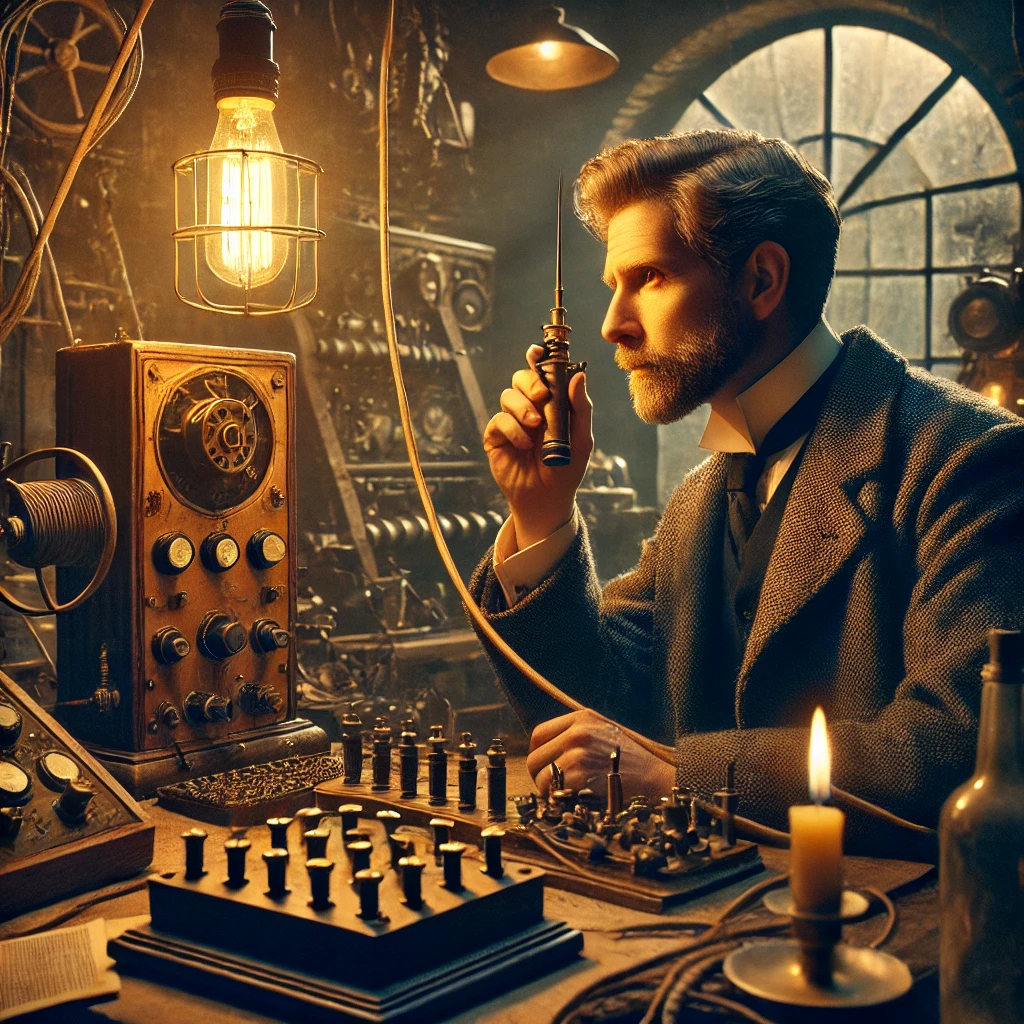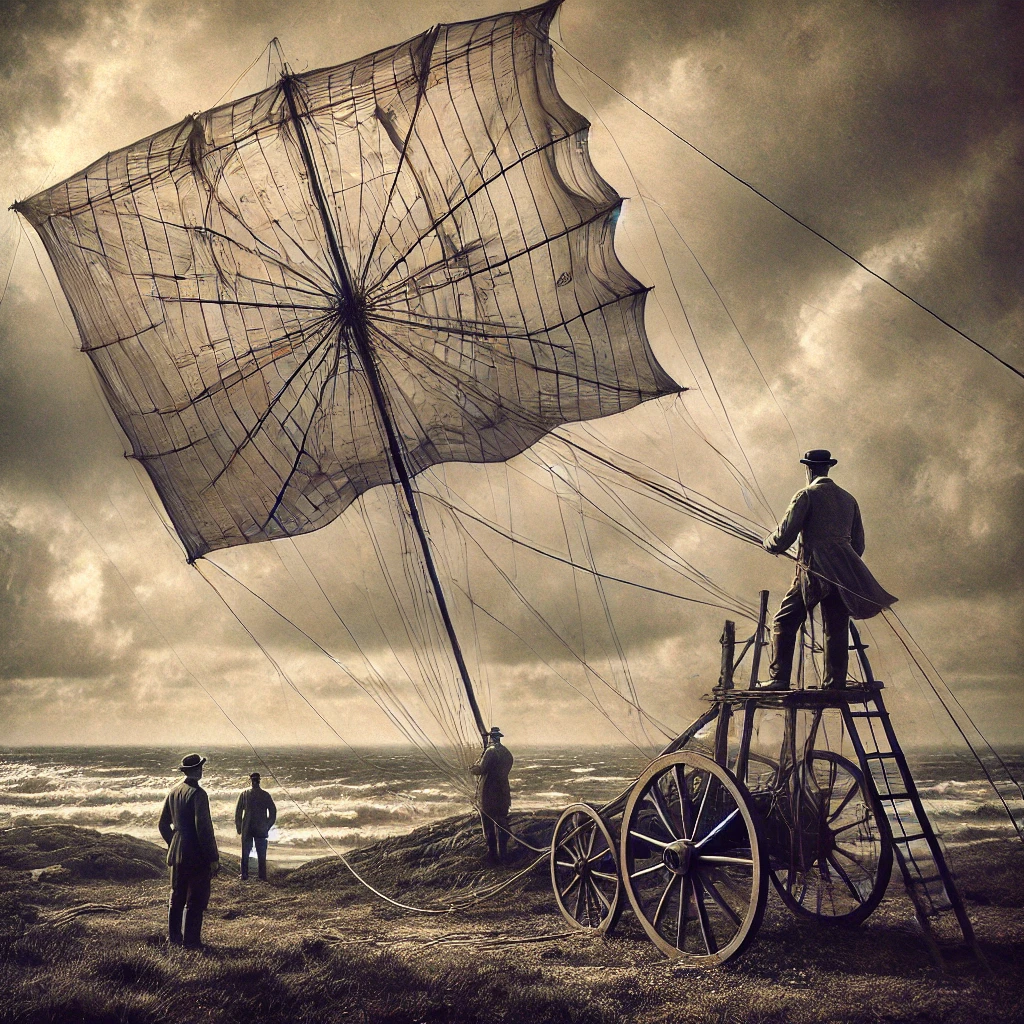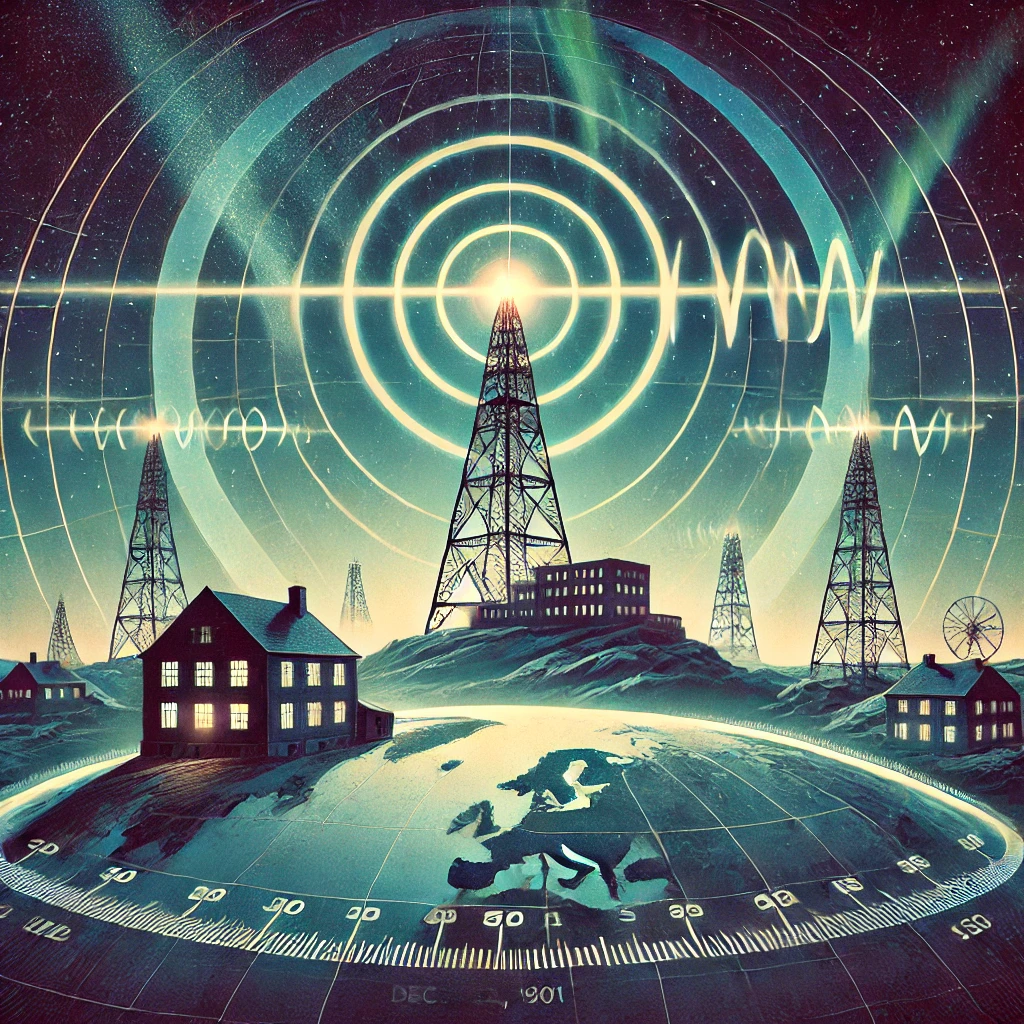On December 12, 1901, history was made as Guglielmo Marconi successfully transmitted the first transatlantic radio signal. From Poldhu in Cornwall, England, a faint but distinct Morse code letter “S” traveled over 2,000 miles to St. John’s, Newfoundland. This achievement marked a pivotal moment in the history of communication, demonstrating the potential to connect continents wirelessly.

A Bold Vision Becomes Reality
Marconi, often called the “father of radio,” had long envisioned a world where wireless communication could overcome the barriers of distance. The idea of sending a signal across the vast Atlantic Ocean was met with skepticism by many scientists of the time, who believed the curvature of the Earth would prevent long-range transmissions. However, Marconi was undeterred. Using his innovative spark-gap transmitters and large antenna arrays, he conducted rigorous experiments that culminated in the historic December 12 transmission.
The process was far from easy. Harsh weather in Newfoundland and technical challenges tested Marconi and his team’s resolve. Yet, when the faint signal was received on a kite-supported wire antenna, it validated years of hard work and transformed Marconi into a global icon of scientific achievement.

The Significance of the First Signal
Marconi’s success was not merely a technical milestone but a profound cultural shift. Before wireless communication, the world relied on undersea telegraph cables to connect distant lands, a method limited by cost and infrastructure. The transatlantic radio signal shattered these boundaries, proving that information could traverse great distances without physical connections.
This breakthrough laid the groundwork for modern radio broadcasting, enabling real-time communication across continents. The ability to send messages wirelessly opened new avenues for commerce, military coordination, and emergency response. Marconi’s invention was soon recognized with a Nobel Prize in Physics in 1909, shared with Karl Ferdinand Braun for their contributions to wireless technology.
A Legacy That Resonates Today

The ripple effects of Marconi’s achievement are felt even in today’s hyperconnected world. Modern technologies like satellite communications, the internet, and mobile networks trace their roots to the principles of wireless communication pioneered by Marconi. His work demonstrated the power of innovation and the importance of pushing beyond the limits of what was considered possible.
In the years following his transatlantic success, radio evolved into a dominant medium for news, entertainment, and global discourse. It bridged cultural divides and brought the world closer together. Today, as we rely on instantaneous global connectivity, we owe much to Marconi’s groundbreaking experiment on that cold December day in 1901.
As we celebrate this historic event, it serves as a reminder of humanity’s endless curiosity and determination to connect with one another. Marconi’s transatlantic triumph remains a shining example of how innovation can overcome even the greatest challenges, shaping the course of history and the future of communication.
